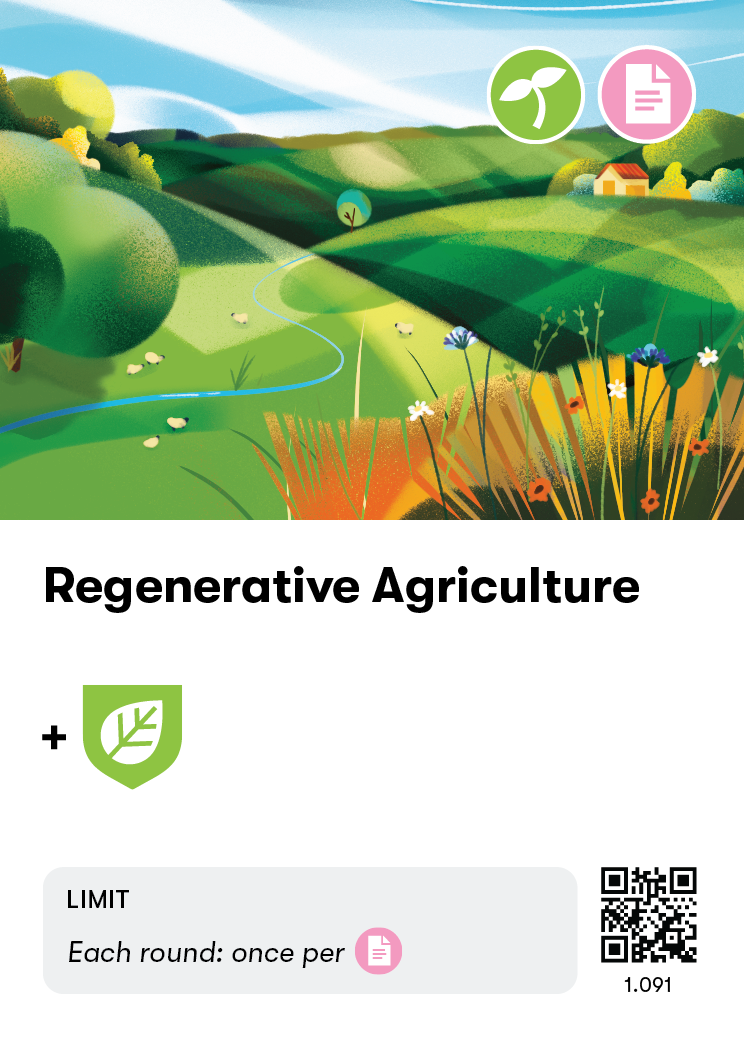Regenerative Agriculture
Local Project
The United Nations estimates that the food system accounts for 80% of deforestation, 29% of greenhouse gas emissions and is the leading cause of biodiversity loss globally. Farming more sustainably is imperative to address these crises.
Regenerative agriculture generally refers to the adoption of less ecologically-damaging farming practices. Similar terms, often used interchangeably, are organic farming or agroecology. Rotating crops, reducing tillage (churning up the ground in preparation for crops), choosing locally adapted varieties of crops, applying compost as a fertilizer, and using organic alternatives to pesticides are a few examples of regenerative farming practices.
These practices regenerate soil fertility by improving its organic matter, thus strengthening plants' health without the need for pesticides. They boost soil carbon sequestration, water retention and improve biodiversity, increasing the presence of pollinators and beneficial insects. This creates healthier and more resilient farming systems that better withstand climate shocks.
Policy reforms and public subsidies must increase their support for truly regenerative farming practices, rewarding farmers that adopt them and regulating against unsafe practices. Regenerative farming practices provide society with essential public goods such as carbon sequestration, soil fertility, clean air and water.
Add 1 Ecological Resilience token to your player board.
You may take this action once per Regulation tag in this card's stack per round.

Regenerative agriculture (Wikipedia)
Agriculture at the Crossroads: Guaranteeing Food Security in a Changing Global Climate (UN Conference on Trade and Development, UNCTAD)
Agriculture at a Crossroads: Synthesis Report (UN Environment Programme, UNEP)
EU organic movement warns against greenwashing (IFOAM Organics Europe)
Buy organic products, for which farmers have used regenerative agricultural practices.
Buy directly from the farmer, or shop at farmers’ markets.
Ask politicians to ensure that regenerative farmers are economically rewarded for their efforts, and ban unsafe practices.



